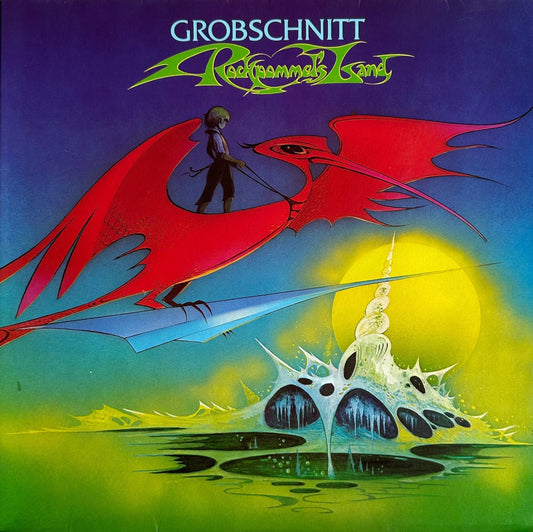The Spanish composer Francisco Guerrero (1528 – 1599) might be nearly unknown outside of early-music and choral circles, but his name keeps popping up on albums over the past couple of years. It’s gorgeous music, and well worth recording. There are a couple of new albums dedicated entirely to his work, and a bit of digging also unearthed individual Guerrero tracks on many recent larger collections. Maybe he’s catching on.
Although Guerrero grew up and died in Seville, he did not spend his whole life in that one town. As a young man he won a coveted position as music director of the cathedral in Jaén, Spain. It surely didn’t hurt that he was a protégé of Cristóbal de Morales, one of the most revered Spanish composers at the time. Guerrero also worked in Italy for a while. Much in demand as a singer, he enjoyed employment as both a performer and a composer. But his sense of adventure turned out to be just as valuable as his musical skills: in 1589, he visited Jerusalem, and on the way home was attacked twice by pirates. He turned the memoir of that pilgrimage into a bestselling book.
The newest Guerrero recording is by his latter-day fellow Sevillians in the A5 Vocal Ensemble. Ave Virgo: Works for 5 Voices by Francisco Guerrero, self-released by A5, draws pieces from four of the composer’s collections published between 1555 and 1589. The liner notes explain that many selections from the last book were actually written decades before as part of Guerrero’s duties at the cathedral; he only bothered to publish them belatedly because he found sloppily notated versions of them being passed around Seville.
Ave Virgo includes six sacred songs that have never before been recorded, which was reason enough to make this album. The five singers in A5 are joined by organist Juan González Batanero, who plays a small organ that sounds almost like a recorder choir, not the massive, installed pipe organ that we think of as standard in churches today; that larger instrument was not yet in common use in the 16th century. Nor does Batanero provide chordal accompaniment during the singing. Again, that would be anachronistic. Instead, he plays occasional melodic lines in answer to the vocal lines, as if his instrument were only another voice. Two of the tracks are works transcribed for organ alone, which was a common practice at the time.
The singers in A5 are not five of the purest or best voices in the early-music business. Their vibrato and fluttering can be a distraction. But their intonation is reliable, and they understand the nuances of late-Renaissance rhythm in vocal polyphony. Take the sacred song “Alma si sabes d’amor” (Soul, if you know of love), one of the early pieces transcribed in Guerrero’s final published collection. He has clearly been influenced by the proliferation of Italian and Franco-Flemish madrigals that had taken over the music scene at mid-century. A5 does a good job of keeping the forward motion of the lines, not getting bogged down in the complexity of the counterpoint.
Another recent album dedicated to Guerrero is conducted by Peter Phillips, a veteran British specialist in early vocal music best known as the founder of the Tallis Scholars. This Hyperion release, Magnificat, Lamentations, and Canciones, features the Spanish ensemble El León de Oro (The Golden Lion). Besides the works for five voices, they have included some with eight parts, one for all men’s voices, and one for double choir (two sets of four parts).
The singers are all top-flight, and Phillips brings to bear his deep understanding of polyphonic textures. Credit must also be given to Marco Antonio Garcia de Paz, who is the usual director of El León de Oro, who prepared his group to take advantage of the visiting expert. Unfortunately, there are no free platforms offering these tracks, but you can sample all of them at this link.
Guerrero has also shown up as a guest on a handful of other records lately. The British group Apollo 5, releasing via the Voces8 Foundation, included three Guerrero sacred songs on their album Where All Roses Go.
Their “Virgen Sancta” lacks the precision of El León de Oro, and the voices are breathier and less supported. But the passion of Guerrero’s intertwined lines, often conspiring to form aching dissonances, still comes through powerfully.
A track by Guerrero also appears on Salve, Salve, Salve: Josquin’s Spanish Legacy, by another British group, Contrapunctus, conducted by Owen Rees on Signum Records. Josquin des Prez, whom I’ve written about previously for Copper (in Issue 132), was a Franco-Flemish composer, mainly working in Italy. He practically reinvented vocal counterpoint, particularly in terms of emotional expression. His innovations helped usher in the last stages of the Renaissance in music, influencing many composers. Guerrero was certainly among them.
Contrapunctus has a rich density and an approach to sound production that gives them more of an atmospheric texture – a wall of sound, if you will – than the intimate coverage of individual voices that most small-group recordings try for nowadays. It’s an approach associated with previous decades, but it also represents accurately what one hears when listening to this music performed live in a church.
Speaking of British early-music recordings with a 1990s sensibility, another small but important contribution to the worldwide Guerrero treasury was recorded in 1993 but didn’t come to light until recently. It’s a single track among more familiar names on the Cambridge Singers’ release A Banquet of Voices. The choir’s famed director, John Rutter, pulled the record out of circulation 29 years ago because he got hung up on the attribution of one the pieces. It became a musicological blind spot for him, and he decided he’d rather put the whole project in mothballs than publish something incorrect. He finally released the album in 2020, with an apology for his stubbornness. We’re lucky he did: the Guerrero work, “Duo Seraphim,” is breathtaking, especially in its changing articulation as the composer drifts from one style to another.
Despite this list of single tracks and single albums, it should be noted that there has been one major multi-disk Guerrero project in the 21st century. The extraordinary series of Guerrero recordings on the Enchiriadis label, started in 2003 by the Danish vocal ensemble Musica Ficta, does not represent his complete works, but it comes closer than anyone else has. For its 3-volume set Villanescas, based on Guerrero’s 1589 publication, Musica Ficta is joined by the instrumental group Ensemble Fontegara. Director Raúl Mallavibarrena does a beautiful job phrasing the voices and instruments fluidly, bringing the musical tapestry to life.
The whole Musica Ficta series is available in hi-res on Qobuz, and I strongly recommend it.



